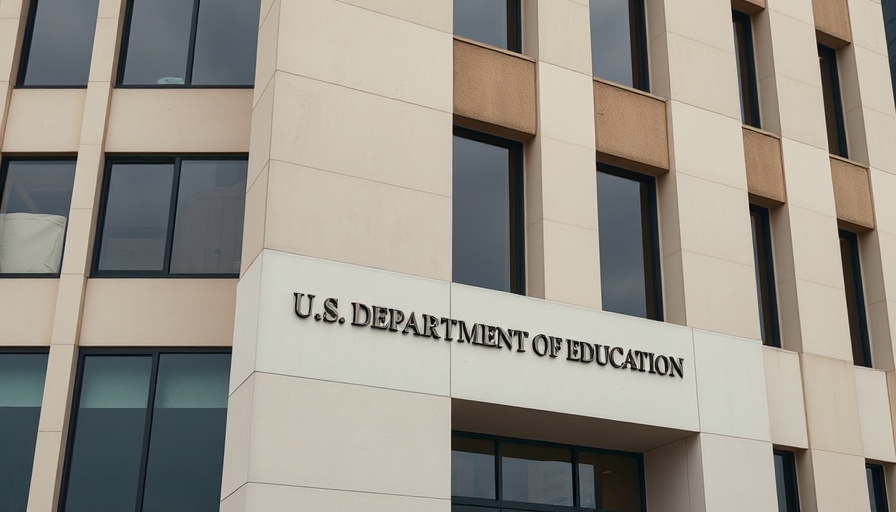
Understanding the Role of the DOE in Texas Education
In Texas, employees of the Department of Education (DOE) play a crucial role in the education system, impacting everything from grants for colleges to protections for underprivileged students. The DOE guides much of the federal funding that flows through the states, ensuring that students across Texas receive the resources and support they need to thrive in their educational endeavors. However, amid political changes, these essential functions face unprecedented threats.
The Impact of Administrative Changes on Student Rights
Following President Donald Trump's executive order to dismantle the DOE, many employees have raised concerns about the ramifications for students, particularly those from marginalized backgrounds. Sheria Smith and Brittany Coleman, both attorneys from the Office for Civil Rights (OCR), have shared their distress over a lengthy pause in their work, during which critical civil rights protections were halted. The OCR was responsible for enforcing laws against discrimination in education, ensuring that students have fair access to educational opportunities irrespective of their race, gender, or disability.
The concern is profound: Without proper enforcement mechanisms, students’ rights may erode, leading to increased incidents of discrimination and insufficient support systems for those needing special accommodations. Coleman emphasizes that students, particularly those with disabilities, could face significant setbacks in their educational journeys without the oversight and support of the DOE.
A Closer Look at Successful Enforcement
The casework handled by Smith and Coleman before the DOE cuts illustrates the critical nature of their roles. From addressing Title IX sexual assault complaints to ensuring reasonable accommodations for students with disabilities, the impact of their work resonated deeply within the community. Now, as positions are eliminated and functions reduced, advocates for educational equity are left wondering how soon-to-be voided efforts could reshape the educational landscape in Texas.
Potential Consequences of Reducing Workforce
Research shows that dismantling civil rights enforcement, particularly in education, can lead to increased instances of discrimination. The fear is that cutting back on civil rights protections will not only adversely affect students who rely on these services but may encourage schools to neglect their responsibility to offer equitable education to all. When resources are stripped, and oversight is diminished, what safeguards remain for vulnerable populations?
Community Connections: The Union's Response
The American Federation of Government Employees (AFGE) Local 252 advocates strongly for the preservation of the DOE's role in maintaining educational equity. As Smith articulately outlines, the community deserves to understand that DOE employees are not merely bureaucrats; they are passionate advocates for the rights and well-being of students. These employees are crucial in safeguarding educational practices that uphold students’ rights and ensure they receive fair treatment. The union’s determination highlights a growing awareness and opposition to the political moves undermining educational security.
Future Predictions and the Path Ahead
Looking forward, education advocates fear a long-term impact on Texas students if the DOE further dismantles its operations. The recommendations are clear: stakeholders must rally in defense of the department, advocating for educational stability and advocating for student rights. Local communities and parents are encouraged to stay informed and engaged, voicing their concerns to policymakers about the future of education and civil rights enforcement.
As citizens witness changes emerge within the nation's schools, it remains vital to prioritize the values of equity and accessibility. The fight for educational justice is ongoing and requires collective vigilance.
 Add Row
Add Row  Add
Add 




 Add Row
Add Row  Add
Add 

Write A Comment